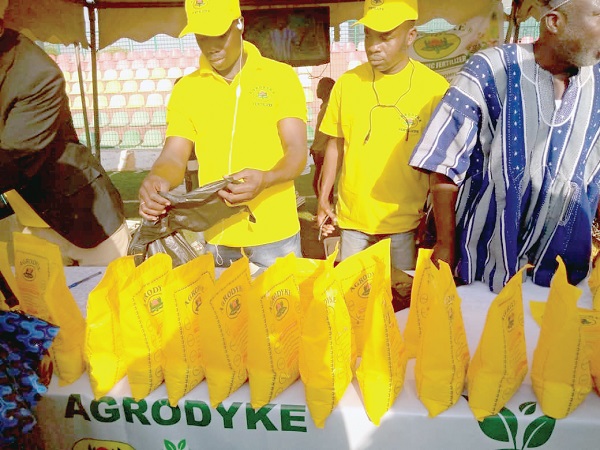|
Getting your Trinity Audio player ready...
|
The maiden edition of the National Rice Fair has been held in Walewale in the North East Region, with a call on investors and private institutions to invest in the sector to boost production.
The two-day event, which started last Friday, was aimed at promoting value added rice products and also connect local industries to international partners in the rice value chain.
It was on the theme “Building Sustainable Partnerships to Enhance Local Rice Production and Consumption”.
About 100 exhibitors from Ghana and abroad participated in the fair to market their wares, dialogue, exchange ideas and network.
The fair also brought together investors, buyers and stakeholders to promote the production and consumption of local rice.
The event was organised by the Tamanaa Company Limited, in collaboration with GIZ, Competitive African Rice Platform (CARP), Yara Ghana, IDH and MasterCard Foundation.
Speaking at the event in Walewale, a Deputy Minister of Food and Agriculture in charge of Livestock, Mohammed Hardi Tufeiru, said although the government was doing its best to promote the production and consumption of local rice, the private sector held the key to the development of the domestic rice sector.
“The Government of Ghana, through the Ministry of Food and Agriculture, is partnering rice sector stakeholders to promote domestic rice production and consumption.
“There is the need to build sustainable partnerships and ensure that all stakeholders work tirelessly to reduce rice imports significantly by increasing domestic rice production,” he stated.
He said the theme for the fair was in line with the government’s agenda to transform the rice sector for economic growth and high incomes for farmers and other value chain actors such as agro-processing and agribusinesses.
He noted that the need to add value to products was a priority to sustain productivity and growth in the sector.
Strategic document
Mr Tufeiru indicated that the ministry, together with its partners, was developing a National Rice Development Strategy II (NRDS II), a strategic document for the development of the domestic rice industry.
The main objective of the NRDS, he said, is to the attain rice self-sufficiency through seven thematic areas, including Seed System; Fertiliser Marketing, Distribution and Usage; Post-Harvest Handling and Marketing; as well as Irrigation and Water Control Investment.
Ban on rice imports
The Chief Executive Officer of Tamanaa Company Limited, Shaibu Briamah, called on the government to ban the importation of rice into the country and encourage the production and consumption of the foodstuff locally.
He suggested to the authorities to increase tariffs on imported rice, to create market for locally produced rice, to increase the income of farmers to support the economy.
He lamented the low patronage of the local rice, saying “Even state institutions don’t patronise local rice, the Buffer Stock Company that is supposed to be patronising local rice is still owing suppliers, which is affecting business.”
The North East Regional Minister, Yidana Zakaria, encouraged rice farmers in the region to increase their output, since the area was endowed with arable lands.
He also encouraged them to engage in dry season farming to increase production.
Source: myghanadaily


